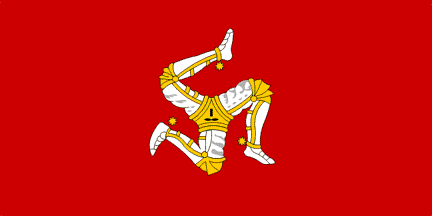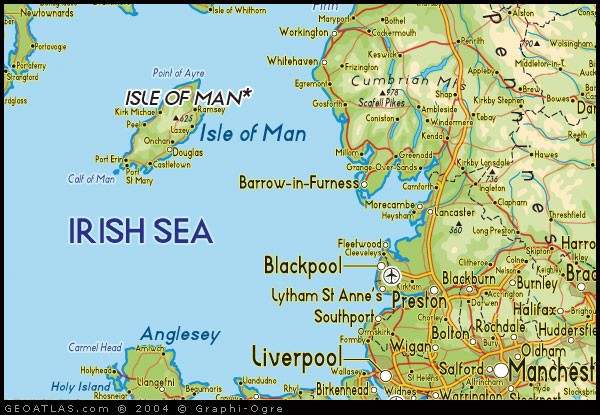
An Isle of Man Protected Cell Company (PCC) is a single legal entity limited by shares. The difference between a typical company limited by shares is that a PCC can separate assets, liabilities, and different share classes from each other into “Cells”. The main corporate body and its assets (called the “Core”) is also separated from its cells.
Law governing PCC’s was first enacted in 2004 called the Isle of Man Protected Cell Companies Act solely for their insurance industry. Due to its potential to protect other industries, numerous business groups lobbied the government to expand the law. Therefore, the Companies Act was amended in 2006 permitting a PCC to be used for any type of business. In addition, the Protected Cell Companies (Eligibility) Regulations were created in 2010.
For example, a PCC can be created to hold different types of assets in different cells. Once cell can hold real properties in the UK. Another cell may own vessels moored around the world. A third cell could hold corporate shares in several companies. A fourth cell could hold global commodities and securities.
Background
The Isle of Man is a British Crown Dependency located on the Irish Sea near the United Kingdom.
Its political system is a democratic parliamentary constitutional monarchy with a two house elected legislature called the Tynwald.
Isle of Man Protected Cell Company (PCC) Benefits
An Isle of Man Protected Cell Company (PCC) has the following benefits:
• Total Foreign Ownership: Foreigners can own 100% of a PCC.
• No Taxation: Foreign owned PCC’s not engaging in business within the Isle of Man pay no taxes. However, Americans and others paying taxes on global income must declare all income to their tax authorities.
• Privacy: The names of shareholders and members are never included in the public records.
• Flexibility: The PCC can create cells for different assets, shareholders, companies, types of investments and business.
• Lower Risks: Independent and segregated cells are safe from any liabilities with other cells or the corporate body.
• One Shareholder: Only one shareholder is required.
• One Director: The corporate body and each cell requires only one director.
• No Minimum Authorized Capital: There is no requirement for a minimum authorized capital.
• Easy Formation: Very few documents are required for its formation.
• English: As a British Crown Dependency English is one of its official languages.

Protected Cell Company (PCC) Name
The proposed company name must not resemble or be similar to an existing company name.
The company name must end with the words “Protected Cell Company” or with its abbreviation “PCC”.
Basics of a PCC
The main company is a single legal entity with its own “general” assets. It then creates one or numerous cells which operate independently from the others.
The Cells
The creation of cells does not create legal entities distinct from the PCC. Every cell will have its own unique name or designation.
The law allows every cell to form a ring fence around its assets protecting them from the liabilities of the other cells.
The PCC must inform all third parties entering into a contractual relationship that it is a PCC company. Specific cells must also inform all third parties that it is part of a PCC company.
Assets and Liabilities
Since each cell operates its business independently from the other cells what it does has no bearing on the other cells. The assets inside the ring fence of a single cell are only accessible to that cell’s shareholders. They are called “cellular assets”. Other cells’ shareholders and creditors have no rights nor recourse against the other cells assets.
The general assets of the Core are called “non-cellular assets” and must be identified as such to contracting third parties. In addition, the PCC’s liabilities which are not related to any of its cells are solely the liability of the PCC and not any of its cells.
Every PCC must keep its non-cellular assets separate from its identifiable cellular assets. Co-mingling is prohibited.
If liabilities arise pertaining to a specific cell:
• That cell’s assets will be attributed to that cell as primarily liable;
• If the primary liable cell’s assets are insufficient to pay the liabilities, the PCC’s non-cellular assets will become secondarily liable; and
• This liability will not become the liability of any other cell’s assets.
However, the PCC can agree with a third party creditor that the liability is solely the responsibility of the cell or solely the responsibility of the PCC’s non-cellular assets.
Any dispute regarding liabilities including the amount of the debt and whether any creditor has a valid claim, the PCC has the right to petition the Isle of Man courts for a declaration regarding the dispute.
Formation
Only companies limited by shares qualify to be registered as a PCC. This is not a difficult condition to meet as a ceiling needs to be established limiting the number of shares which can be issued. The formation is very simple. The applicant only needs to do the following:
1. To be newly incorporated as a PCC, the Memorandum of Association must clearly declare that it is a PCC; or
2. An existing company can apply to the Registrar of Companies (“Registrar”) for conversion into a PCC. The application for conversion must be accompanied with an amended Memorandum of Association and new Articles of Association. Once the required documents are filed, the Registrar will issue a Certificate of Conversion.

Shares
The law allows for a minimum of one shareholder who can be a citizen of and reside in any other country.
Since only a limited shares company can become a PCC, the maximum number of allowable shares is limited.
Any PCC can issue shares for any of the separate cells called “Cell Shares”. The proceeds from the sale of cell shares are solely the assets of the particular cell. The PCC can issue shares for its corporate body’s behalf and all proceeds are solely non-cellular assets.
Distribution
The 2006 Act defines “distribution” as to when a company transfers any assets directly to a member or for the member’s benefit or incurring a company debt for the benefit of a member. This includes the payment of dividends or redemption or purchase of shares.
A PCC’s directors may authorize a distribution by a cell (“Cellular Distribution”) if reasonably satisfied that the PCC will remain solvent after the distribution. The solvency test is:
1. In the normal course of business, the company is able to pay all debts when due; and
2. The total value of the company’s assets exceeds the total liabilities.
Directors
A minimum of one director is required who can be a citizen of another country and reside anywhere.
PCC directors must act with care and skill and in good faith with the best interests of the company is fulfilling their duties. Directors must keep non-cellular assets separate from cellular assets and maintain records clearly identifying every cell’s assets.
Registered Agent and Office Address
Every PCC must appoint a local registered agent and maintain a local office address.
Minimum Authorized Capital
There is no required minimum authorized capital.
Taxes
Offshore corporations with no Isle of Man residents as owners or shareholders which does not engage in any type of commerce inside the Isle of Man are exempt from all taxes.
Note: Americans and everyone subject to worldwide taxation must declare all income to their governments.
Accounting and Audits
The PCC must file an annual return approved by the directors.
Annual accounts are not required. However, acceptable minimum accounting practices must be maintained.
No audits will be required for a PCC having 2 out of the following 3 criteria: having less than 50 employees, a balance sheet less than 2.8 million GBP, and an annual turnover of less than 5.6 million GBP.
Annual General Meeting
An annual general meeting is required.
Public Records
The names of members and shareholders are not included in any public records.
Time for Registration
Typically, the registration process may take two business days.
Shelf Corporations
Shelf corporations and companies are not available in the Isle of Man.
From an Isle of Man Protected Cell Company (PCC) Conclusion
An Isle of Man Protected Cell Company (PCC) has the following benefits: total foreign ownership no taxes, privacy, lower risks for cells, greater flexibility for conducting business, one shareholder, one director, no minimum capital, easy formation, English one of its official languages.


